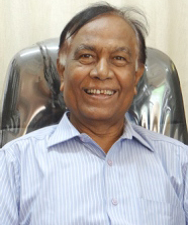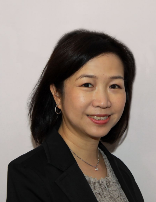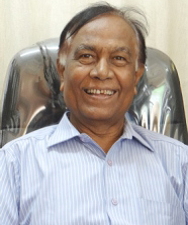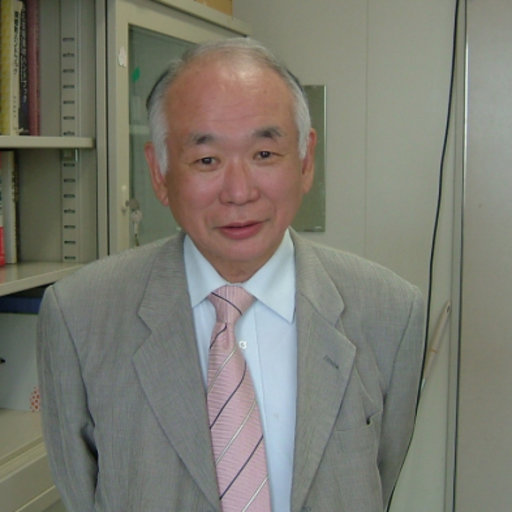Day 1 :
Keynote Forum
B. B. Jana
Member of National Academy of Agricultural Sciences, New Delhi
Keynote: Human urine as organic alternative to chemical fertilizers: Positive feedback to poverty alleviation and safety of Mother Earth
Time : 11 :30 am - 12 : 15 pm

Biography:
Professor B. B. Jana, a Fellow of National Academy of Agricultural Sciences, New Delhi as well as some other prestigious Academies of India and recipient of Joy Govinda Memorial Award of the Asiatic Society, is Emeritus Professor has passion for rural development through adopting the philosophy of wastes into wealth. He has published several monographs, books and contributed chapters in UNESCO-Encyclopedia and has published more than 235 peer reviewed papers and supervised 32 Ph. D students. His domain of research includes wastewater aquaculture, ecological sanitation, eco-restoration, ecological engineering, microbial nutrient cycling, integrated organic farming, impact of global warming and climate change issues in aquaculture, water conservation, etc.
Abstract:
Human urine is not a waste but a resource out of place. Average person voids around 2 liters of urine per day which is rich in nitrogen (15-19%), phosphorous, (2.5-5%) potassium (3.0-4.5%), carbon (11-17%) calcium (4.5- 6%) apart from some growth promoting agents such as amino acids, glucose and vitamins and immense medicinal properties that enabled it perfect for urine therapy. More than 2.4 billion people in the world of which nearly 60% of the Indian population do not have access to proper sanitation causing high risk numerous of airborne and waterborne diseases when discharged into the sewer system or through open defecation. On the other hand, there is vast scope for its profitable uses in various economic driven activities. As a result, eco-san has emerged as eco-friendly alternative to close the loop between sanitation and agriculture by the way of providing organic fertilizers in agriculture and aquaculture production. Urine diversion toilet is particularly useful for collection and to create safe fertilizers that would substitute cost intensive synthetic chemical fertilizers and provide food security, poverty and malnutrition alleviation, and improve the trade balance of countries importing chemical fertilizers. Researchers have shown human urine as a safe fertilizer in organic farming for the production of tomato, barley, wheat, spinach, Ash gold, French bean, pole bean, pumpkin, banana, green Amaranth, cucumber, etc.
Keynote Forum
Winnie SO Wing-mui
Director of the Centre for Education in Environmental Sustainability at the Education University of Hong Kong
Keynote: Education on Plastic Recycling Waste (PRW) Management in Hong Kong Schools
Time : 9:45 am - 10:30 am

Biography:
Professor Winnie SO Wing-mui, Professor of the Department of Science & Environmental Studies, and Director of the Centre for Education in Environmental Sustainability at the Education University of Hong Kong. Prof So has actively engaged in environmental education work for years. She initiated various environmental education programmes for school and University students, for example, the “I Act, U Act! - Education for Plastic Waste Recycling” and “Plastic Resources Education – 3Rs & 3Cs” , to carry out the education of plastic recycling with a new 8-compartment plastic waste recycling bin (8-bin) with designed patent received in 2015. Prof So has also endeavoured to promote the environmental sustainability work on solid waste management by organizing international conference and symposium in 2014 & 2016. She also actively served the Hong Kong community in various committees related to the environment, conservation, science and education
Abstract:
Plastics have become the ubiquitous material of the modern economy with their versatile properties. Global plastics production has increased twentyfold in the past half-century and is expected to double again in the next 20 years, which is an alarming situation. Hong Kong has certainly contributed to the plastics crisis, plastics are the third largest constituent of Municipal Solid Waste (MSW) locally, they accounted for 21% of total MSW in 2016, whereas the plastics recyclables’ recovery rate was only14%, most of them were accumulated in landfills and natural environment. Educating the next generation on plastic waste recycling and management is indispensable to tackle the problem, thereby, a series of Plastic Recycling Waste (PRW) education programs were initiated by the Education University in Hong Kong, which included “I Act, U Act!” for university students in 2013-2015 and “3Rs & 3Cs” for primary schools during 2016-2018. These programs demonstrated how the teaching and learning packages contribute to the plastic recycling work combined with the using of an innovative 8-compartments Plastic Recycling Bin (PRB). The PRB served as an education tool to assist the students to practice the proper plastic recycling steps (3Cs – Cleaning, Classification and Compression), and collected the eight types of plastics according to their Resin Identification Code (RIC) numbers. The size and design of each compartment were based on the statistical data and policies from different Asian countries. With the implementation of PRW education programs, partnership between local schools and recycling industries was developed, students were given the opportunities to study the works of recycling industries through site visits, talks sharing, and experiential learning activities in recycling centers. While recyclers collaborated with the University to collect the recycled plastics from schools regularly. This speech will help to draw global implications from the local lessons on education for plastic waste recycling.
Keynote Forum
B. B. Jana
Member of National Academy of Agricultural Sciences, New Delhi
Keynote: Human urine as organic alternative to chemical fertilizers: Positive feedback to poverty alleviation and safety of Mother Earth
Time : 11 :30 am - 12 : 15 pm

Biography:
Professor B. B. Jana, a Fellow of National Academy of Agricultural Sciences, New Delhi as well as some other prestigious Academies of India and recipient of Joy Govinda Memorial Award of the Asiatic Society, is Emeritus Professor has passion for rural development through adopting the philosophy of wastes into wealth. He has published several monographs, books and contributed chapters in UNESCO-Encyclopedia and has published more than 235 peer reviewed papers and supervised 32 Ph. D students. His domain of research includes wastewater aquaculture, ecological sanitation, eco-restoration, ecological engineering, microbial nutrient cycling, integrated organic farming, impact of global warming and climate change issues in aquaculture, water conservation, etc.
Abstract:
Human urine is not a waste but a resource out of place. Average person voids around 2 liters of urine per day which is rich in nitrogen (15-19%), phosphorous, (2.5-5%) potassium (3.0-4.5%), carbon (11-17%) calcium (4.5- 6%) apart from some growth promoting agents such as amino acids, glucose and vitamins and immense medicinal properties that enabled it perfect for urine therapy. More than 2.4 billion people in the world of which nearly 60% of the Indian population do not have access to proper sanitation causing high risk numerous of airborne and waterborne diseases when discharged into the sewer system or through open defecation. On the other hand, there is vast scope for its profitable uses in various economic driven activities. As a result, eco-san has emerged as eco-friendly alternative to close the loop between sanitation and agriculture by the way of providing organic fertilizers in agriculture and aquaculture production. Urine diversion toilet is particularly useful for collection and to create safe fertilizers that would substitute cost intensive synthetic chemical fertilizers and provide food security, poverty and malnutrition alleviation, and improve the trade balance of countries importing chemical fertilizers. Researchers have shown human urine as a safe fertilizer in organic farming for the production of tomato, barley, wheat, spinach, Ash gold, French bean, pole bean, pumpkin, banana, green Amaranth, cucumber, etc.
Keynote Forum
Katsutoshi Inoue
Saga University, Japan
Keynote: Recovery of precious metals by means of adsorption using microalgal waste
Time : 11:00-11:45

Biography:
Katsutoshi Inoue has received Bachelor’s degree from Kyushu University, Department of Organic Synthesis, Master’s degree from the same university. He became a Lecturer of Saga University, Department of Applied Chemistry in 1971. He has completed his PhD degree from Kyushu University and became an Associate Professor of Saga University in 1974 and then became Full Professor of Saga University in 1986. He retired from Saga University and became a Professor Emeritus of the same university in 2009. His field is separation chemistry and technology such as adsorption, ion exchange and solvent extraction.
Abstract:
Novel environmentally benign adsorbent was prepared from waste residue of microalgae after extracting biodiesel oil by a simple manner of treating in concentrated sulfuric acid at high temperature. Although the feed material, the microalgal waste itself, was found to selectively adsorb gold(III), palladium(II) and platinum(IV) from hydrochloric acid solution over base metals such as copper(II), nickel(II) and so on, the adsorption of gold(III) was dramatically enhanced by the treatment using concentrated sulfuric acid; it was recovered as metallic gold particles. In order to improve the adsorption behavior for palladium(II) and platinum(IV), some chemically modified microalgal gels were also prepared by immobilizing some functional groups such as dithiooxamide, polyethyleneimine and trimethylamine. In addition to the basic investigation about the adsorption behaviors of these biosorbents, adsorptive recovery of precious metals was also investigated from actual leach liquor of printed circuit board of spent mobile phones using the chemically modified adsorbent in order to verify its effectiveness for practical application.
- Special Session
Session Introduction
Imumolen Christopher I
Africa Director: Accreditation Services for International Colleges and University UK
Title: EFFECT OF LITTERS ON ENVIRONMENTAL QUALITY IN NIGERIA (A CASE STUDY OF IYANA-IBA, LAGOS STATE)

Biography:
Brief Profile
- Bachelor Degree in Mechanical Engineering
- Masters Degree in Material Engineering
- PhD in Engineering & Research
Position:
- MD: JPTS International
- Technical Adviser Oil & Gas Monitoring with State Government Nigeria
- Africa Director: Accreditation Services for International Colleges and University UK
- General Secretary: West Africa Sustainable Energy Professionals
- President: Onshore Offshore Oil and Gas Professionals Nigeria
- UN Climate Negotiator
Abstract:
Environmental quality refers to the standard of the local area and includes all/any issues that might affect the appearance of the area and/or how people perceive the area.An aspect of solid waste management that has become almost intractable to local authorities in Nigeria is street littering. Data was collected for a period of five days in Iyana-Iba, Lagos and were focused on several questions bordering on street littering (why they littered, what they littered, where they littered, etc.), and their personal information (age, sex, income status, educational levels etc.). Data collected during this research was analyzed using univariate and multivariate models. Results showed that the litter problem was quite intense in all the streets surveyed. The level of education, age and income of subjects were major determinants of their littering habit. This research shows that subjects littered the streets for several reasons (absence of bins, inefficiencies of local authorities, ignorance, weak legislation, anger, stress, etc.). It was also found that there is no relationship between education and littering attitude, hence; littering attitude of both highly educated participants and the lower cannot be marked out distinctively different; it thus mean that all were found to have negative attitudes.Thisresearch showed that population growth with uncontrolled and unplanned urban expansion of the area created the problems of waste management. The solid waste generation and roadside disposal system in this study area fall below acceptable standard. Non-biodegradable fractions of the municipal solid wastes are the major problems in solid waste management, because plastic, polythene and e-waste materials constitute physical nuisance to the environment. In addition most of these non-biodegradable materials contain high levels of chemical elements which some have been implicated in the etiology of many ailments peculiar to humans.
